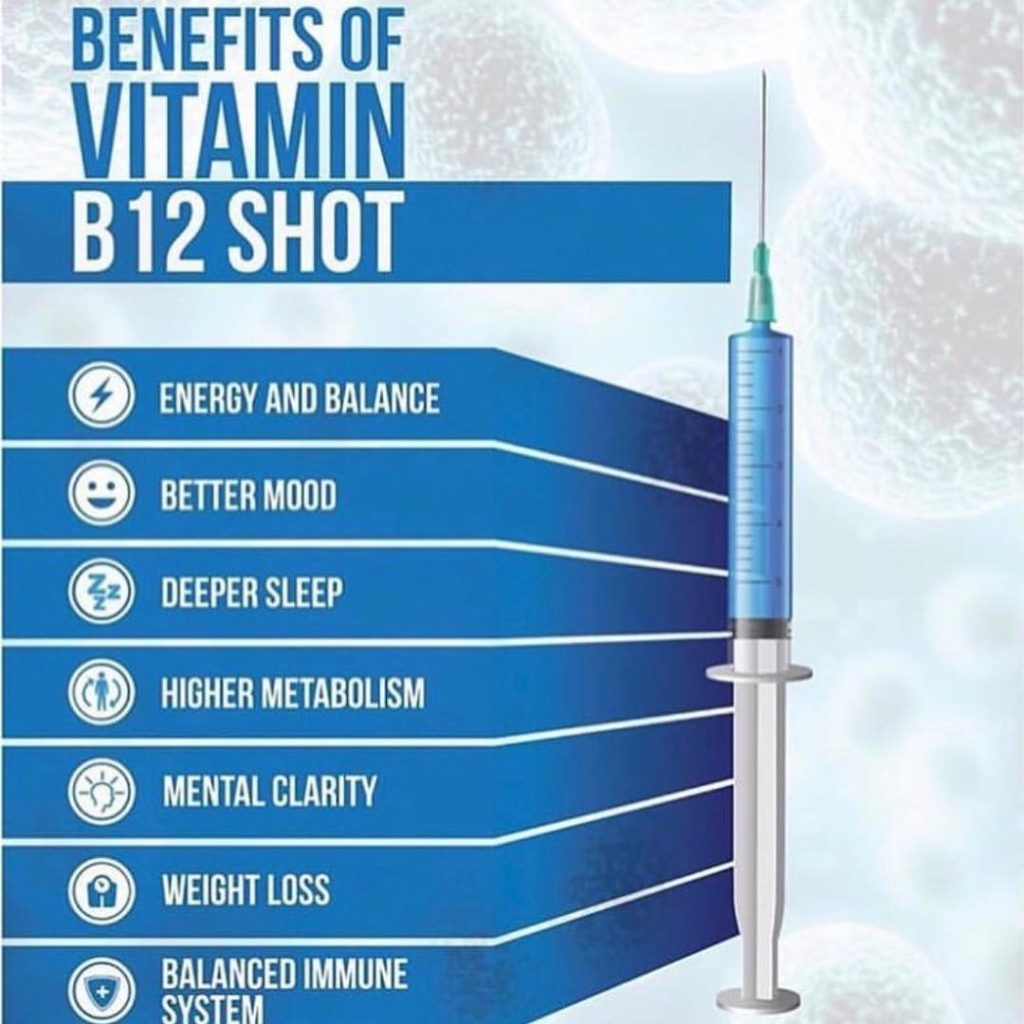Features List
B12 Injections
-
AT A GLANCE
-
TREATMENT TIME 5 mins
-
PAIN None
-
RESULTS Immediate
-
RESULTS DURATION As long as you continue with the treatment. Once a month injections may be required.
-
PRICE From £40

What is B12 Injections?
Vitamin B12 in the form of hydroxocobalamin is a vital nutrient with diverse benefits for individual health. As a water-soluble vitamin, B12 is crucial for the formation of red blood cells, contributing to oxygen transport and preventing anemia-related fatigue. Its role in DNA synthesis is fundamental for cell division and the maintenance of healthy tissues, emphasizing its importance for overall well-being.
Beyond hematological functions, B12 plays a key role in neurological health, supporting nerve cell function and the proper operation of the nervous system. Deficiencies may manifest as neurological symptoms, including numbness, tingling, and cognitive disturbances. Additionally, B12 is involved in energy metabolism, aiding in the conversion of food into energy, and has implications for mood regulation through its role in neurotransmitter synthesis. B12 supplementation, often administered through injections, is a valuable approach to address deficiencies and support these essential functions.
How do B12 Injections work?
B12 injections work by delivering a direct and concentrated dose of vitamin B12, typically in the form of hydroxocobalamin, into the body’s tissues, specifically the muscle (intramuscular). Once administered, hydroxocobalamin undergoes conversion in the body to active forms of B12, such as methylcobalamin and adenosylcobalamin. The primary mechanism of action involves B12’s essential role in several enzymatic processes crucial for health.
Vitamin B12 is integral to the synthesis of DNA, necessary for cell division and the creation of new cells. It is a co-factor for methionine synthase, an enzyme involved in the methylation cycle, which is crucial for the metabolism of amino acids and the production of neurotransmitters. Additionally, B12 is essential for the conversion of homocysteine to methionine, preventing the accumulation of homocysteine, which is associated with cardiovascular risk. By directly introducing B12 into the body through injections, these processes are supported more efficiently, making B12 injections an effective method for addressing deficiencies and promoting overall health.


How is the treatment administered?
B12 injections are typically administered directly into the muscle, known as intramuscular injection. The procedure is relatively quick, often taking around 5 minutes. A healthcare professional uses a thin needle to deliver the concentrated B12 solution directly into the muscle tissue, usually in the upper arm or thigh. Intramuscular administration allows for efficient absorption of vitamin B12 into the bloodstream, ensuring rapid availability for the body’s essential functions.
Side effects
B12 injections are generally considered safe with minimal side effects when administered appropriately. Common side effects are usually mild and may include pain or discomfort at the injection site, redness, or swelling. In some cases, individuals may experience temporary dizziness or headache.

Before & After Gallery


Frequently
Asked Questions
B12 injections are administered to address vitamin B12 deficiencies and support various physiological functions. They work by delivering a concentrated dose of B12, typically in the form of hydroxocobalamin, directly into the muscle. B12 is crucial for red blood cell formation, neurological health, DNA synthesis, energy metabolism, and mood regulation.
B12 injections provide benefits such as improved red blood cell production, enhanced neurological function, DNA synthesis support, energy metabolism, and potential mood regulation. They are particularly useful for addressing B12 deficiencies.
The frequency of B12 injections depends on individual needs and the severity of the deficiency. We recommend to start with 4 sessions one week apart each, and then once a month, but a healthcare professional will determine an appropriate schedule, which may include regular intervals.
While B12 is involved in energy metabolism, scientific evidence supporting B12 injections for weight loss is limited. B12 injections are primarily recommended for addressing deficiencies and supporting overall health.
B12 is water-soluble, and excess amounts are typically excreted by the body. B12 injections, when administered as recommended, pose a low risk of overdose. Excessive intake is generally unnecessary.
Individual responses vary, but some individuals may experience improvements in energy levels and symptoms within a few days after starting B12 injections.










